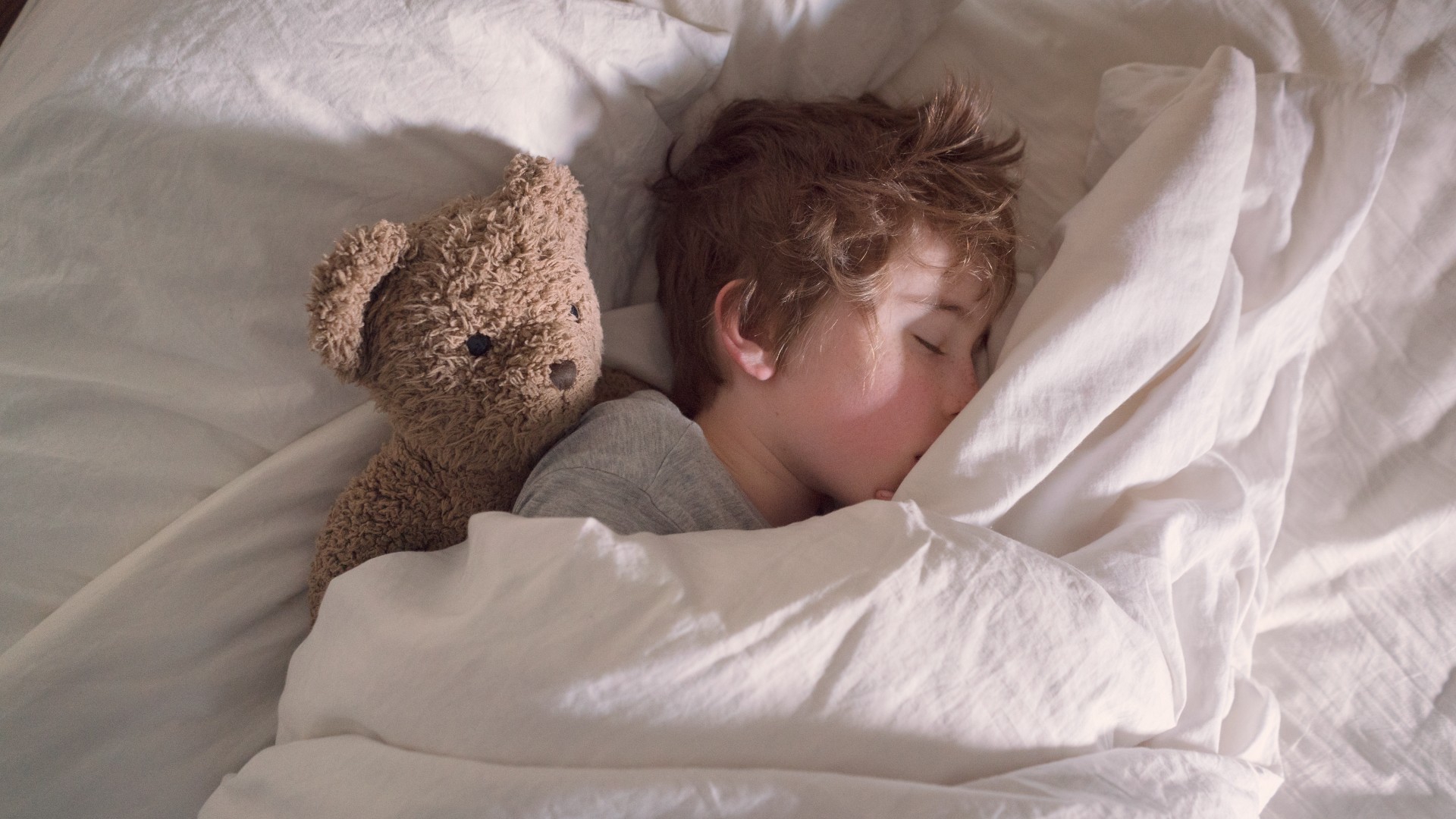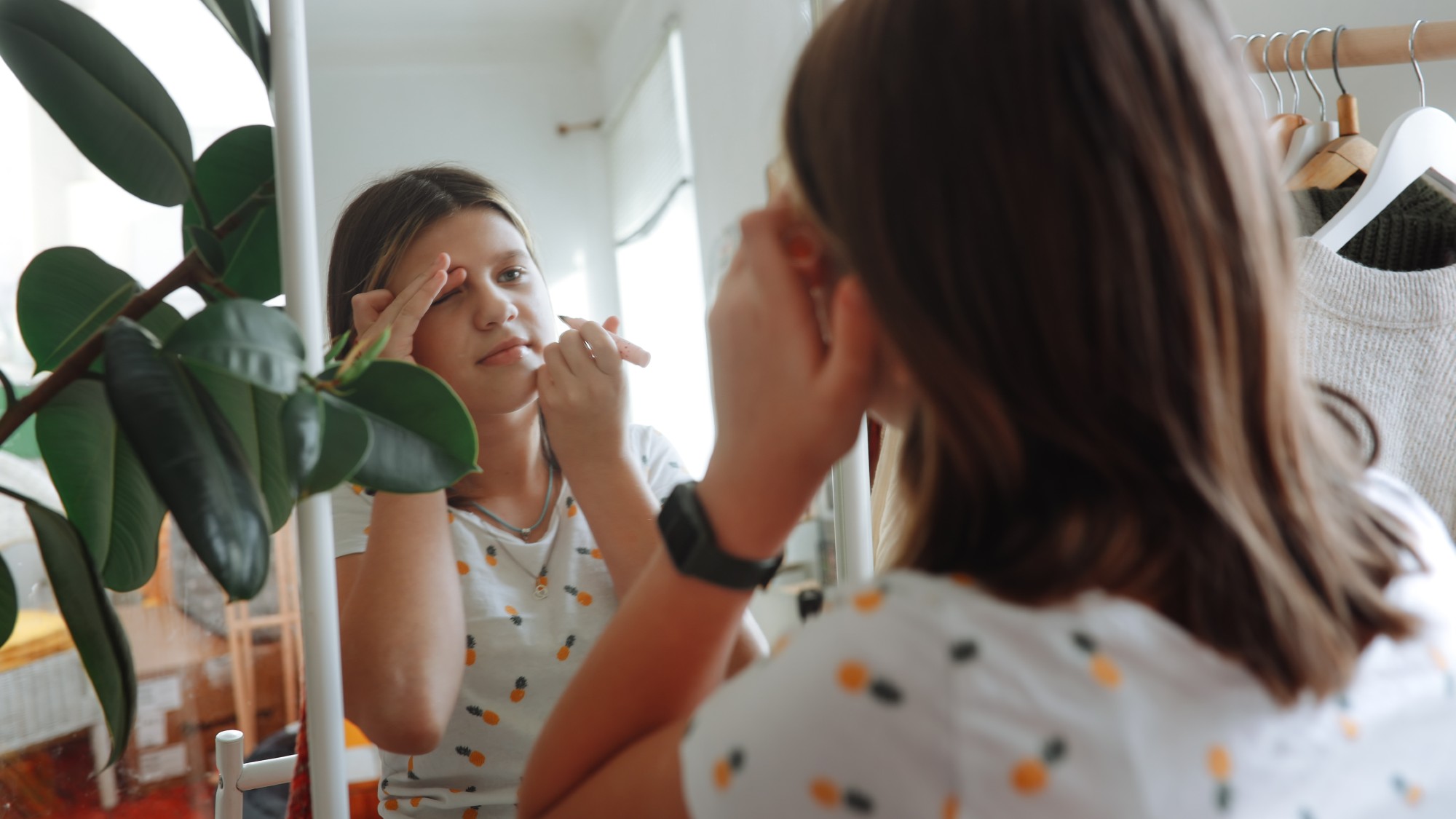The rise of melatonin
Use of synthetic sleep hormone increased dramatically in both UK and US, especially among children

A free daily email with the biggest news stories of the day – and the best features from TheWeek.com
You are now subscribed
Your newsletter sign-up was successful
The regular use of melatonin to help children sleep has become "exceedingly common" in the US, a new study has found.
Nearly 1 in 5 (19%) children aged one to 14 were relying on the drug this year, according to research published in JAMA Pediatrics in November. That's up from an estimated 1.3% from 2017-18.
Although the controversial drug is recommended only as a short-term solution, children in the study were taking the supplement for 12-21 months – despite little research about the long-term effects, noted The Washington Post. While it is prescription-only in the UK, its general use here is also on the rise.
The Week
Escape your echo chamber. Get the facts behind the news, plus analysis from multiple perspectives.

Sign up for The Week's Free Newsletters
From our morning news briefing to a weekly Good News Newsletter, get the best of The Week delivered directly to your inbox.
From our morning news briefing to a weekly Good News Newsletter, get the best of The Week delivered directly to your inbox.
"In an age of insomnia, melatonin has become a must-have sleep aid," said The Spectator magazine: "as ubiquitous as yoga or herbal tea."
What is melatonin?
Melatonin is a hormone naturally produced in the body that regulates sleep patterns. Levels rise at night before returning to normal during the day. Those struggling to sleep can take a synthetic version, which is classed as a drug in most countries and available only on prescription.
Unlike sleeping pills, which impact receptors in the brain to slow the nervous system, melatonin simply "signposts the brain towards sleep", Dr Sophie Bostock told The Spectator. However, "evidence it can help chronic sleeplessness is limited, and many experts are concerned by melatonin mania", said the magazine.
In the UK, it is mainly prescribed to those aged 55 and over struggling with insomnia and jet lag. It was approved for children in 2018 with much stricter guidance: licensed only for those with long-term sleep problems.
A free daily email with the biggest news stories of the day – and the best features from TheWeek.com
But in the US, melatonin is considered a supplement rather than a medication, so it is not as tightly regulated by the Food and Drug Administration (FDA). It is available over the counter, often in child-friendly sweets and gummies. A US health advisory warning urged parents this year to consult a doctor before giving it to children, but it is still the second most common supplement parents use after multivitamins, according to Harvard Health.
How much has use risen?
Between 2009 and 2018, use of melatonin in the US increased fivefold, said The Atlantic. About 27% of adults now take it, according to the US charity the National Sleep Foundation.
In England, use has also risen dramatically. From 2008-19, prescriptions increased from 2 in 1,000 people to nearly 20 in 1,000, according to a 2021 study published in British Journal of Clinical Pharmacology.
Prescriptions in the most deprived areas were generally 60% higher than in the least deprived areas. But the exact rate of usage is unknown, points out The Spectator. "Many more of us… buy it unlicenced online."
During the Covid-19 pandemic, sleep difficulties increased among all age groups thanks to more screen time, reduced exercise, disrupted routine and higher anxiety. But the pattern of increased use of melatonin was already stark. As The Atlantic noted, the pandemic "may have only accelerated this growing popularity".
What about among children?
Between 2015 and 2022, prescriptions to under-17s increased by 168%, according NHS data obtained by The Pharmaceutical Journal last year. In 2022, the number of under-17s being prescribed melatonin hit more than 60,000 – a figure experts described as "shocking".
The rate for children was almost five times higher than adults, and significantly higher than other European countries. Almost all had attention deficit hyperactivity disorder (ADHD) or were on the autism spectrum, the rise of which may correlate with the increase in melatonin prescriptions.
In the US, about 6% of children aged one to four, and 18% aged five to nine, were being given melatonin in 2023, according to the November study. The sample size for the study was small (1,000 parents) and not necessarily representative, the authors pointed out – but it was "telling nonetheless", said lead author Lauren Hartstein, of the Sleep and Development Lab at University of Colorado (CU) Boulder.
A survey in September also suggested that about 46% of American parents had given melatonin to children under the age of 13.
What are the risks?
Mild side effects include drowsiness, nausea and headaches, but overuse of melatonin has been linked to vomiting and joint pain.
Reports of melatonin ingestion to poison control centres in the US increased 530% from 2012 to 2021, according to the Centers for Disease Control and Prevention, largely among small children. By 2020, poison control centres were receiving more calls about paediatric overdoses on melatonin than on any other substance, noted The Atlantic.
The risk, said the CU Boulder study authors, is in the gummies: "They look and taste like candy."
An April study found that 22 out of 25 gummy products contained different amounts of melatonin than the label indicated. One had more than three times the amount, and some supplements were also found to contain serotonin.
As one doctor told The Spectator: "If you buy melatonin in Walmart you have absolutely no idea what dose it is."
Harriet Marsden is a senior staff writer and podcast panellist for The Week, covering world news and writing the weekly Global Digest newsletter. Before joining the site in 2023, she was a freelance journalist for seven years, working for The Guardian, The Times and The Independent among others, and regularly appearing on radio shows. In 2021, she was awarded the “journalist-at-large” fellowship by the Local Trust charity, and spent a year travelling independently to some of England’s most deprived areas to write about community activism. She has a master’s in international journalism from City University, and has also worked in Bolivia, Colombia and Spain.
-
 The environmental cost of GLP-1s
The environmental cost of GLP-1sThe explainer Producing the drugs is a dirty process
-
 Greenland’s capital becomes ground zero for the country’s diplomatic straits
Greenland’s capital becomes ground zero for the country’s diplomatic straitsIN THE SPOTLIGHT A flurry of new consular activity in Nuuk shows how important Greenland has become to Europeans’ anxiety about American imperialism
-
 ‘This is something that happens all too often’
‘This is something that happens all too often’Instant Opinion Opinion, comment and editorials of the day
-
 Trump HHS slashes advised child vaccinations
Trump HHS slashes advised child vaccinationsSpeed Read In a widely condemned move, the CDC will now recommend that children get vaccinated against 11 communicable diseases, not 17
-
 Deaths of children under 5 have gone up for the first time this century
Deaths of children under 5 have gone up for the first time this centuryUnder the radar Poor funding is the culprit
-
 Stopping GLP-1s raises complicated questions for pregnancy
Stopping GLP-1s raises complicated questions for pregnancyThe Explainer Stopping the medication could be risky during pregnancy, but there is more to the story to be uncovered
-
 RFK Jr. sets his sights on linking antidepressants to mass violence
RFK Jr. sets his sights on linking antidepressants to mass violenceThe Explainer The health secretary’s crusade to Make America Healthy Again has vital mental health medications on the agenda
-
 Nitazene is quietly increasing opioid deaths
Nitazene is quietly increasing opioid deathsThe explainer The drug is usually consumed accidentally
-
 The expanding world of child skincare
The expanding world of child skincareUnder the Radar Beauty line for kids as young as three sparks ‘rage’
-
 The plant-based portfolio diet invests in your heart’s health
The plant-based portfolio diet invests in your heart’s healthThe Explainer Its guidelines are flexible and vegan-friendly
-
 More women are using more testosterone despite limited research
More women are using more testosterone despite limited researchThe explainer There is no FDA-approved testosterone product for women